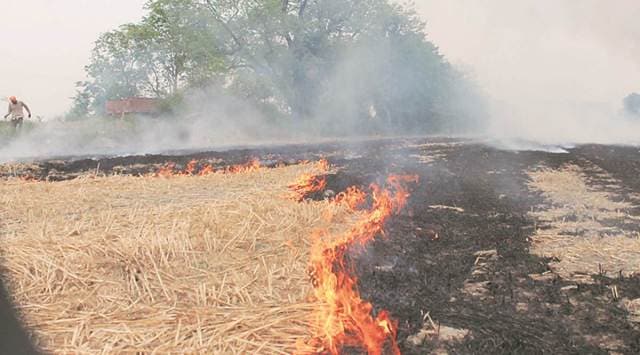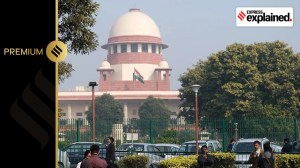- India
- International
Ahead of winter, stubble burning back in focus
“(Stubble burning’s) impact on Delhi’s air quality index (AQI) will be minimal for the next three days, as predominant winds are not supportive for transport and accumulation (of pollutants),” the letter said.
 Late in the evening, Tehsildar Kuldeep Singh reached the village and assured the farmers that no such incident will happen again.
Late in the evening, Tehsildar Kuldeep Singh reached the village and assured the farmers that no such incident will happen again.The Supreme Court-appointed Environment Pollution (Prevention and Control) Authority (EPCA) Tuesday wrote to the chief secretaries of Punjab and Haryana to urgently address the issue of crop residue burning.
The letter from EPCA chairman Bhure Lal said crop stubble burning appears to have started in Punjab and neighbouring border areas.
Lal said that as per data from the Centre-run SAFAR agency, the fire counts were 42 on Monday and 20 on Sunday, and appear to have started after September 15, when there were none.
“(Stubble burning’s) impact on Delhi’s air quality index (AQI) will be minimal for the next three days, as predominant winds are not supportive for transport and accumulation (of pollutants),” the letter said.
It added, “While the impact on air pollution is minimal currently, as the wind speed is high and there is dispersion, crop burning season has started and it needs to be urgently addressed as per directions of the Supreme Court.”

At the start of every winter, farmers in northwest Indian states set fire to leftover paddy stubble to quickly clear their fields before planting wheat crops. Every year, smoke from such farm fires veer over to Delhi, contributing to air pollution during winters, in addition to sources of emissions within the city.
Lal told the Punjab and Haryana chief secretaries that the apex court has specified in-situ and ex-situ stubble management measures that need to be taken, so that farm fires are minimised, if not completely eliminated. The letter also asks the chief secretaries to ensure that machines that are alternatives to stubble burning are available to farmers at affordable rates.
“We would also request you to set up a control room in which directions can be issued and action taken, both for ensuring the machineries are within the reach of farmers as well as ensuring enforcement of the non-compliance reported from the field,” it added.
EPCA also held a review meeting with the Delhi Pollution Control Committee on Tuesday for 15 air pollution hotspots in the city. The hotspots include Dwarka, Wazirpur, Mayapuri, Anand Vihar, Jhilmil, Punjabi Bagh.
DPCC had inspected the hotspots over August and September, identified polluting activities or sources of pollution, and issued directions to various agencies to control them.
Dumping of construction waste, garbage and traffic congestions were among major issues reported at the hotspots. At Punjabi Bagh, air pollution from a crematorium was noted. It has four CNG-fired furnaces and open fire facilities, and during peak Covid period, as per the DPCC, around 22-25 bodies per day were cremated using CNG facilities.
May 07: Latest News
- 01
- 02
- 03
- 04
- 05




























